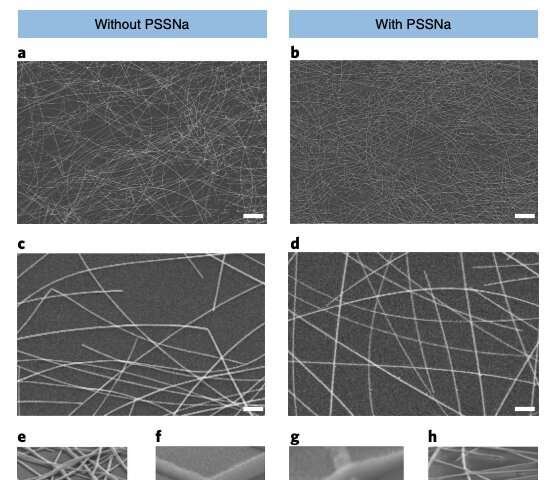The process of rifting in Africa means that the continent is slowly breaking apart and with that comes lots of volcanoes, some with the potential for massive explosive eruptions.



Promising preliminary data from one of the first human trials testing the safety and efficacy of a CRISPR gene therapy has just been revealed. Although it is too early to evaluate long-term effects, the initial reports are impressively successful for two patients with severe genetic blood diseases.
Until February of this year, when pharmaceutical companies CRISPR Therapeutics and Vertex began a large global trial into a treatment called CTX001, no human outside of China had been officially treated with a CRISPR-based gene editing therapy.
CTX001 was developed to treat two types of inherited blood disease, beta-thalassemia and sickle cell disease. Both conditions are caused by a mutation in a single gene and the treatment involves engineering a patient’s stem cells with a single genetic change designed to raise levels of fetal hemoglobin in red blood cells.

“This inverse association was robust, consistently seen across current, past, and never smokers, as well as men, women, and individuals with different backgrounds,” she adds.
Shu says the health benefits may be rooted in their prebiotic (nondigestible food that promotes growth of beneficial microorganisms in the intestines) and probiotic properties. The properties may independently or synergistically modulate gut microbiota in a beneficial way.
The research appears in JAMA Oncology. Additional coauthors are from Seoul National University and Vanderbilt.

Gamma-ray bursts appear without warning and only last a few seconds, so astronomers had to move quickly. Just 50 seconds after satellites spotted the January explosion, telescopes on Earth swiveled to catch a flood of thousands of particles of light.
“These are by far the highest-energy photons ever discovered from a gamma-ray burst,” Elisa Bernardini, a gamma-ray scientist, said in a press release.
Over 300 scientists around the world studied the results; their work was published Wednesday in the journal Nature.

Researchers from the University of Houston have reported a new device that can both efficiently capture solar energy and store it until it is needed, offering promise for applications ranging from power generation to distillation and desalination.
Unlike solar panels and solar cells, which rely on photovoltaic technology for the direct generation of electricity, the hybrid device captures heat from the sun and stores it as thermal energy. It addresses some of the issues that have stalled wider-scale adoption of solar power, suggesting an avenue for using solar energy around-the-clock, despite limited sunlight hours, cloudy days and other constraints.
The work, described in a paper published Wednesday in Joule, combines molecular energy storage and latent heat storage to produce an integrated harvesting and storage device for potential 24/7 operation. The researchers report a harvesting efficiency of 73% at small-scale operation and as high as 90% at large-scale operation.

Organic electronic devices, which are made of small molecules or polymers (i.e., substances composed primarily or completely of similar units bound together) are known to have several advantageous properties. In fact, organic electronics have relatively low production costs, they are easy to integrate with other systems and they enable good device flexibility.
Despite their advantages, most organic optoelectronics devices do not perform as well as devices built on rigid substrates. This is primarily due to the lack of existing flexible electrodes that can simultaneously provide low resistance, high transparency and smooth surfaces.
With this in mind, researchers at Nankai University in China have recently set out to create new organic electrodes for flexible photovoltaics, devices that can be used to capture sunlight and convert it into electricity. The electrodes they developed, presented in a paper published in Nature Electronics, were built using water-processed silver nanowires and a polyelectrolyte.

Last week, the BBC reported on the plight of axolotls in Mexico City, which are under threat of extinction. [1] The risk to these creatures is made doubly concerning when you consider their incredible ability to regenerate and apparent immunity to cancer, which is of great interest to scientists and companies working in the Longevity sector. One such company is Bioquark, a Philadelphia-based life sciences company that is working on the development of combinatorial biologics for the rejuvenation and repair of human organs and tissues. Among its clinical plans, it lists the development of therapeutic products for cancer reversion, organ repair and regeneration, and even brain death resuscitation. Nothing major then!
Bioquark has developed a novel combinatorial biologic called BQ-A, which mimics the regulatory biochemistry of the living human egg (oocyte) immediately following fertilization. While ooplasm-based reprogramming has been studied in experiments such as in-vitro fertilization and cloning, Bioquark claims it is the first company to apply it to somatic tissue in mammals.
We spoke with Bioquark’s CEO, Ira Pastor, a 30-year veteran of the pharmaceutical industry, to find out more about the company and where it’s headed.

Statistically, it’s unlikely that most of us will ever reach our 110th birthday, so scientists are fascinated by those few that do. In a new study, researchers looked at the immune systems of people who have hit the milestone, and found that they have a high number of a particular type of immune cell that’s rare even in healthy, younger people.
Even in our world of modern medicine, supercentenarians (people over the age of 110) are extremely rare, with estimates saying there are less than 1,000 such people worldwide. Perhaps not surprisingly, previous studies have shown that people who make it to 110 years old generally seem to avoid illnesses like cancer or infections throughout their whole lifetimes.
So for the new study, researchers at the RIKEN Center for Integrative Medical Science (IMS) and Keio University set out to examine the immune systems of supercentenarians and compare them to younger people. They took over 40,000 cells from seven supercentenarian subjects, and about 20,000 cells from five control subjects, aged in their 50s to 80s.

While Intermittent fasting may sound like another dieting craze, the practice of routinely not eating and drinking for short periods of time has shown again to lead to potentially better health outcomes.
In a new study by researchers at the Intermountain Healthcare Heart Institute in Salt Lake City, researchers have found that cardiac catheterization patients who practiced regular intermittent fasting lived longer than patients who don’t. In addition, the study found that patients who practice intermittent fasting are less likely to be diagnosed with heart failure.
“It’s another example of how we’re finding that regularly fasting can lead to better health outcomes and longer lives,” said Benjamin Horne, Ph.D., principal investigator of the study and director of cardiovascular and genetic epidemiology at the Intermountain Healthcare Heart Institute.
Researchers at the University of Maryland School of Medicine have developed a technique to operate on dying patients by putting them in a state of suspended animation.